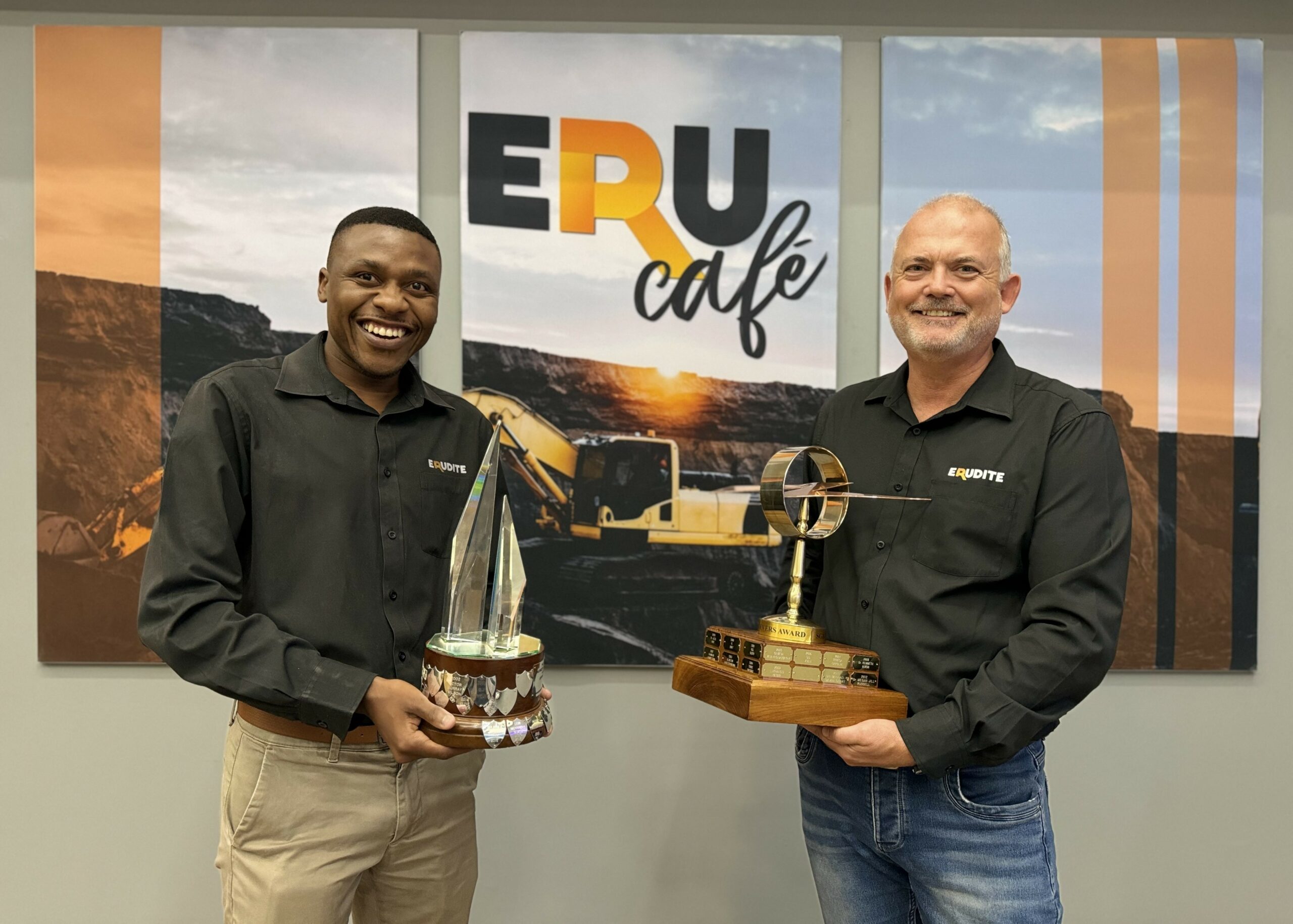Energy
Renewable energy pioneer named Engineer of the Year
Dr Mpho Sam Nkambule highlights the importance of mentorship in engineering excellence.
Dr Mpho Sam Nkambule, an electrical engineer from Pretoria, has been named the 2023 Engineer of the Year for his contributions and groundbreaking research in the renewable energy field, having developed novel technology to optimise renewable energy production as part of his doctoral research.
He received the distinction at the recent South African Institute of Electrical Engineers (SAIEE) Annual Awards in Melrose Arch, which recognises the achievements of electrical engineers in the electrical and electronic engineering sectors.
Dr Nkambule is a member of Erudite’s engineering team, a prominent Engineering, Procurement, and Construction Management (EPCM) company with operations across Africa. He was nominated by his friend and colleague, Hercu Smit, the Head of Erudite’s EC&I department, who himself was a past recipient of the SAIEE’s Young Achievers Award for the best electrical engineer under the age of 35.
“I’m deeply honoured to have received this award, and I’m truly grateful to the SAIEE, as well as to Erudite and Hercu for supporting me, and for their confidence in my work. It’s a real privilege to have been selected, and to be able to continue promoting and developing renewable energy technology,” he says.

Mpho Sam Nkambule, holding his Engineer of the Year award
Advancing renewable energy through 4IR technology
Dr Nkambule is particularly interested in the use of hybrid machine learning and artificial intelligence powered solutions to enhance photovoltaic (PV) energy and battery energy storage system (BESS) performance. A number of his studies on renewable energy projects, maximum power point tracking (MPPT) of solar PV plants and BESS energy management systems to enhance the system’s efficiency and efficacy, have been published in various high impact factor international journals and conference papers.
He notes that inconsistency remains a particularly significant challenge in the renewable energy space, making advancements in battery storage technology critical.
“Solar panels and wind turbines rely on optimal weather conditions, and solar is further affected by the amount of available daylight hours, as well as potential partial shading conditions – factors that could lead to an intermittent power supply with no performance guarantee. As a result, there’s a significant need for improved energy monitoring and management systems, as well as better battery storage solutions.
“The global shift towards clean, reliable, and sustainable energy is rapidly underway, so it’s imperative that we promptly address the emerging challenges accompanying this transition.”
In response, his research for his PhD in Electrical and Electronic Engineering at the University of Johannesburg, he delved into the performance and techno-economic analysis of optimal hybrid renewable energy systems through modelling and simulations.
“I looked at the integration of various battery energy storage technologies with embedded renewable energy sources. This involved implementing an intelligent energy management system to facilitate energy resource management, reduce costs, and align with sustainability objectives.
“These efforts resonate with Erudite’s strategic focus on pursuing battery commodities such as lithium, cobalt, and graphite, emphasising the pivotal role of storage solutions in driving forward renewable energy integration and sustainability endeavours. The team at Erudite is well versed in battery manufacturing technologies and have been involved in studies for battery anode facilities including graphite spheroidization and coating,” he said.
Shaping the future of solar
Besides his research, Dr Nkambule is involved in growing Erudite’s renewable energy portfolio. This growth is spurred on by increasing demand for alternative energy solutions in the market. Recently, he also played a key role in various feasibility studies integrating the Solar PV system with BESS.
In addition to various electrical, control and instrumentation projects, he is also working closely with Smit to realise his vision for the future of commercial and industrial solar technology.
“It’s rare that two people in the same company, let alone the same department receive these types of awards. But I’m proud to say that at Erudite, quite a few of our employees have received similar awards over the years, which reflects our commitment to mentoring and growing world-class engineers by directly involving them in complex projects from day one,” says Smit.
In conclusion, Dr Nkambule has one final message for young South Africans: “If there is one thing I can say to the younger generations, it’s that the industry and the country as a whole urgently need your minds.
“The electrical engineering field is vast, and the opportunities are plenty. You cannot go wrong choosing to study in this field and pursuing your dreams of innovating within the electrical industry as well.”


















